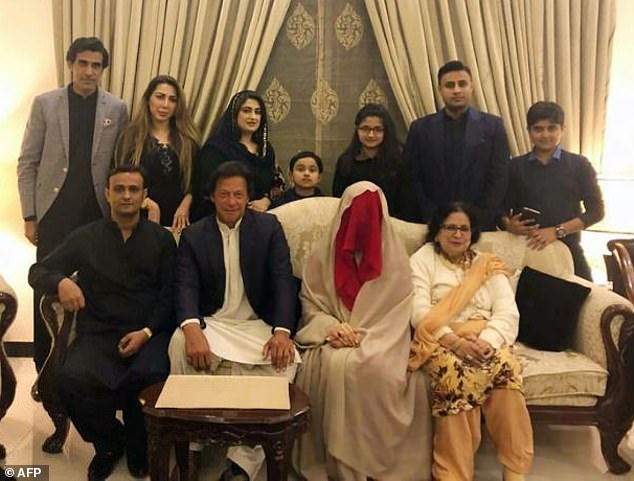By Shaheen Naqshbandi for TwoCircles.net
Recently, Pakistani politician Imran Khan married Bushra Maneka. During the Nikah, the bride wore the full veil and some people made jokes about it, called it a “tent”. There is nothing wrong with making fun or jokes about this but what people fail to realise is that they may be inadvertently falling for Islamophobia.

Some well-meaning people who cannot be accused of Islamophobia also wrote posts and shared pictures of Imran Khan’s new wife Bushra Maneka’s veil using terms which all Muslims that I know of find offensive, not because it refers to the lady in question but because these terms are typically employed by Islamophobes to ridicule, demean, and demonize Muslims and their religious and cultural symbols. Such words that are used to ridicule a person’s religious or cultural attire are offensive not only to observant religious people but even to other followers of that religion.
The point that I want to put across is that if the women in question don’t find anything wrong in observing Pardah and an entire community associates it with the socio-cultural interpretations of religion, then we have no right to take away their agency. A recent incident of a video come to mind where an Australian politician Pauline Hanson tried to ridicule Islamic Burka by wearing it in Australian parliament and then taking it off while she was seeking to ban Burka in Australia. She was slammed by Attorney-General George Brandis who sternly reminded her that her “stunt” and ridicule of Burkha is insulting to Australian Muslims. This video became viral and George Brandis was praised by people of all faiths for his pluralistic stand.
If somebody is forced or a religious interpretation is thrust on anybody or if somebody outside that religion is harmed by it, only then is it right to seek ways to work against any religious edict or custom, whether by words or through actions. This is more pertinent in today’s atmosphere where Islamophobia is rampant and every Tom, Dick and Harry wants to “reform” Islam and “liberate” Muslim women. To these liberators: let Muslim women liberate themselves if there is a need.
We often see in anti-Muslim narratives such accusations being levelled like, Muslims are regressive, Islam oppresses women, Islamic conception of gender relations is regressive, women who observe Pardah are oppressed. It is these small things that build up xenophobic narratives. Of course, you are most free to ridicule religions if you don’t believe in religion at all, but I believe at times when a religious community is vulnerable & persecuted, one should be extra cautious in choosing the platform and audience of religion bashing.
Regarding Pardah, like the one observed by Mrs Bushra Maneka at her Nikah ceremony, it should be noted that a majority of Muslim women during the ceremony of Nikah wear various such types of veils. One thing that has to be understood is that occasions like Nikah are solemnised with religious customs and rituals and it is commonplace to see in a Muslim marriage a copy of Quran worn like a necklace, or Quran kept on the head or placed in the hand of the bride. This symbolism of Quran or veil are a few examples of how religious symbolism is visible in Muslim marriages. As a matter of fact, marriages of most religious communities are solemnised with religious symbolism. People of my family and most of the people I know had a veil on Nikah. It is interesting how women of other communities in India who wear Ghoonghat are never called regressive for their attire or derogatorily referred to as “tents”.
The limited point is that in the present atmosphere one should avoid using words that are used to demean and dehumanize Muslims. In India itself, and in fact the world over, Hijabi women are regularly targeted. Many times, violently. These jokes don’t help as they further perpetuate a hatred of Muslims.
It is often the common Muslims who are the victims of Islamophobia. Calling ‘tent’ to the Hijab-clad wife of Imran Khan won’t affect her, but such words can be used as taunts for common Muslim women on the street. Sadly, this doesn’t end at jokes and taunts. As we have seen in recent news, here are a few examples of what women with Hijab were subject to:
Someone tries to push Hijabi women in front on a train
A Hijabi woman is refused service at a restaurant
Hijabi women is denied job due to her Hijab
Some Islamophobe gets violent and tries to forcibly remove Hijab of a Muslim girl
The question is whether it is right to build narratives that seek to, directly or inadvertently, further perpetuate this anti-Hijab and anti-Muslim xenophobia.
*The author is a lawyer*


